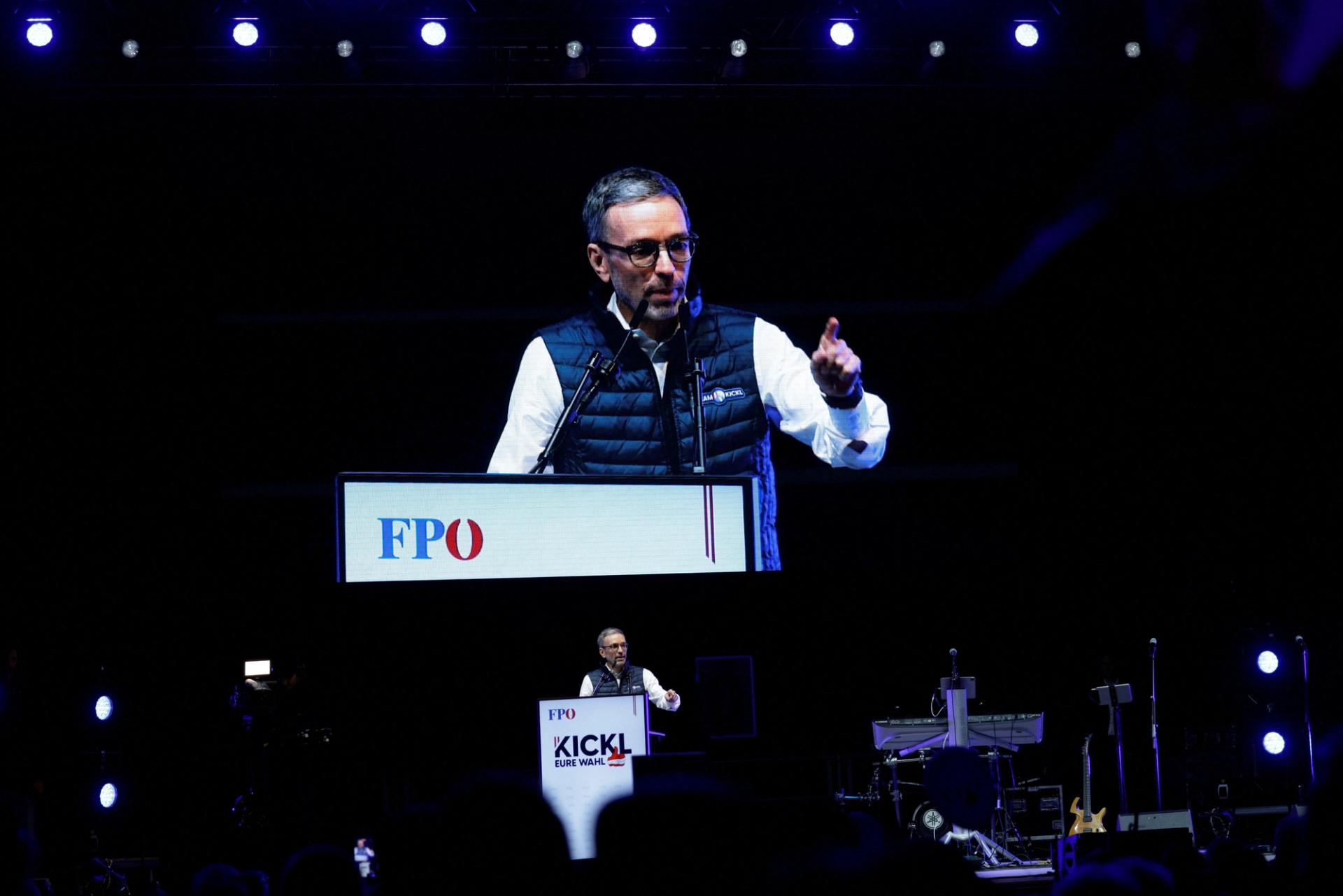The News
Austria’s far-right Freedom Party won its first ever national election, taking 29.2% of the votes, according to preliminary results.
The victory marks the latest in a string of electoral triumphs and near-wins for Europe’s far-right movement, with parties in Germany, France, Italy, and the Netherlands making significant gains this year.
“We have opened the door to a new era,” party leader Herbert Kickl said after the vote, although the party will now need to form a coalition in order to govern. While the current ruling center right party has indicated it would work with the far right, its leader has ruled out working with Kickl, who is known for his acerbic and personal attacks on other Austrian politicians.
With Austrian voters, however, Kickl’s fiery rhetoric on immigration and the cost of living has propelled the party, founded by former Nazi officers, into power after decades in the minority.
SIGNALS
Austrian far right fueled by widespread anger over quality of life
The Freedom Party is riding a wave of public anger over what voters perceive as the country’s mismanagement, The Guardian noted. “This victory reveals the radicalization of part of the Austrian electorate against a backdrop of record inflation, high immigration and growing skepticism about the progress of the war in Ukraine,” Le Monde wrote, adding that Kickl’s tactic of moving the party to be overtly anti-vaccine and climate-skeptic has helped it capitalize on left-over pandemic resentment. Kickl, who one expert described to CNN as “arguably the best communicator” in Austrian politics, has connected with some Austrians’ eroded trust in the political status quo, with some supporters even using the Nazi-era nickname “Volkskanzler,” or chancellor of the people, although he rejects the moniker, Euronews noted.
‘Relentless march’ of far right in Europe continues
Nationalist, populist, and far-right parties are on a “relentless march” to power in Europe, the Financial Times’ Europe editor wrote, with the Freedom Party’s victory another milestone on the road. Earlier this year, a Politico analysis found that, as of May, seven European countries had hard-right governments or coalitions, and right-wing groups led the polls in eight others, with the bloc’s far right gaining ground in the June European parliamentary elections, too. Their rise reflects a European constituency that feels “provincialised, demoted, and exhausted” by the continent’s “relative decline” compared to other world regions, an analyst wrote in Al Jazeera.
Economic woes drive political unrest, in Europe and elsewhere
Countries across the West are feeling the electoral effects of soaring inflation of up to 11% and spiraling government debt, The New York Times noted earlier this year. In Europe, the continent’s post-pandemic recovery was effectively stalled by Russia’s invasion of Ukraine, which also created an energy crisis, France 24 noted. Meanwhile, the bloc’s climate agenda sparked farmers’ protests, adding to the malaise. “The economic anxieties are adding to divisions between rural and urban dwellers, unskilled and college educated workers, religious traditionalists and secularists,” The Times noted, with the far right poised to capitalize on the dissatisfaction.

